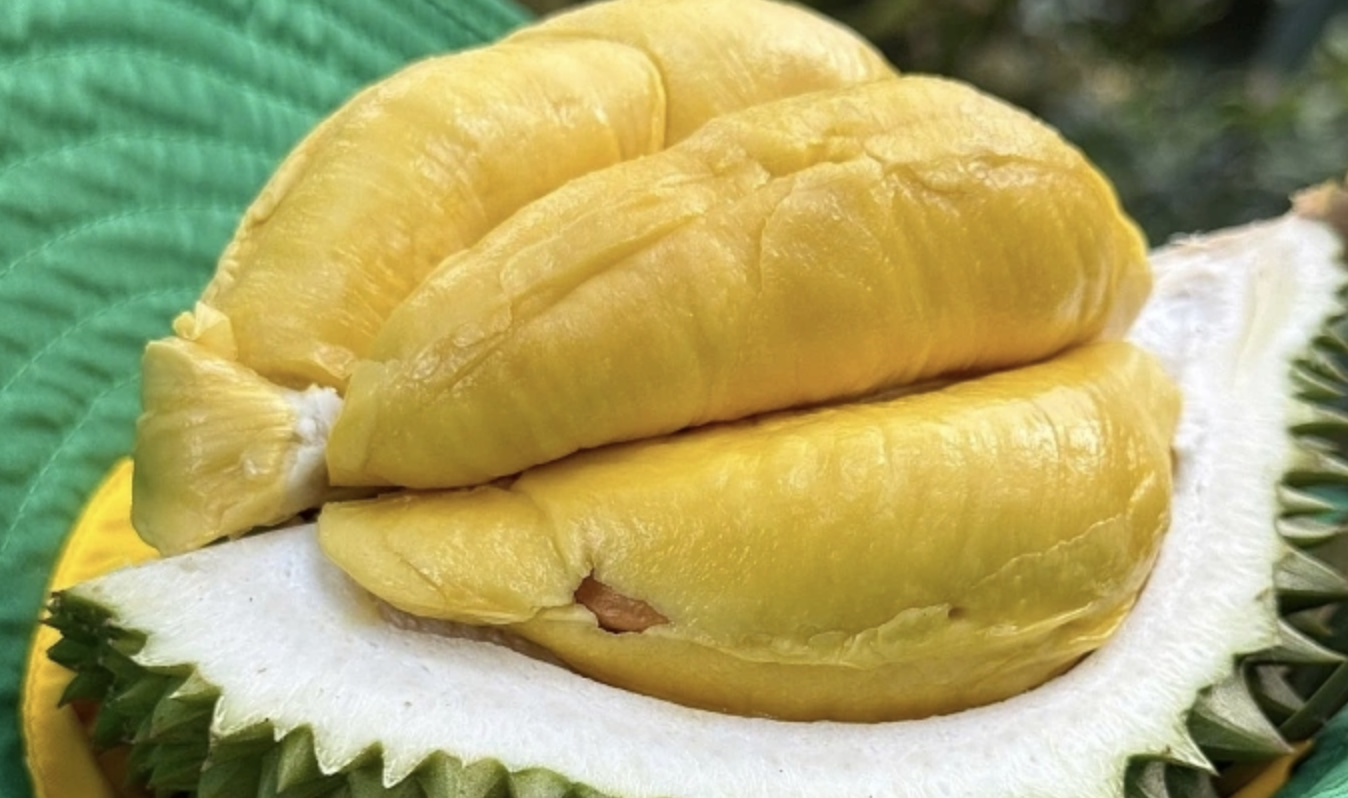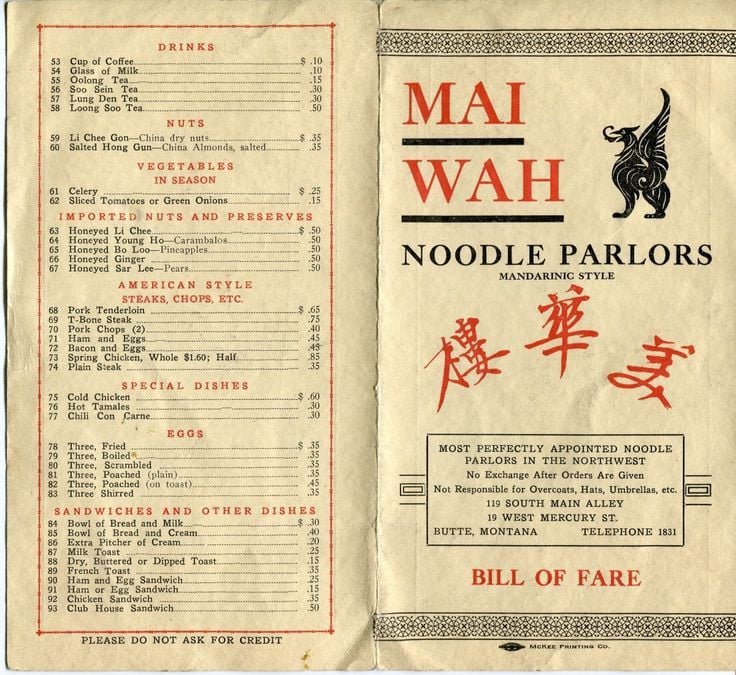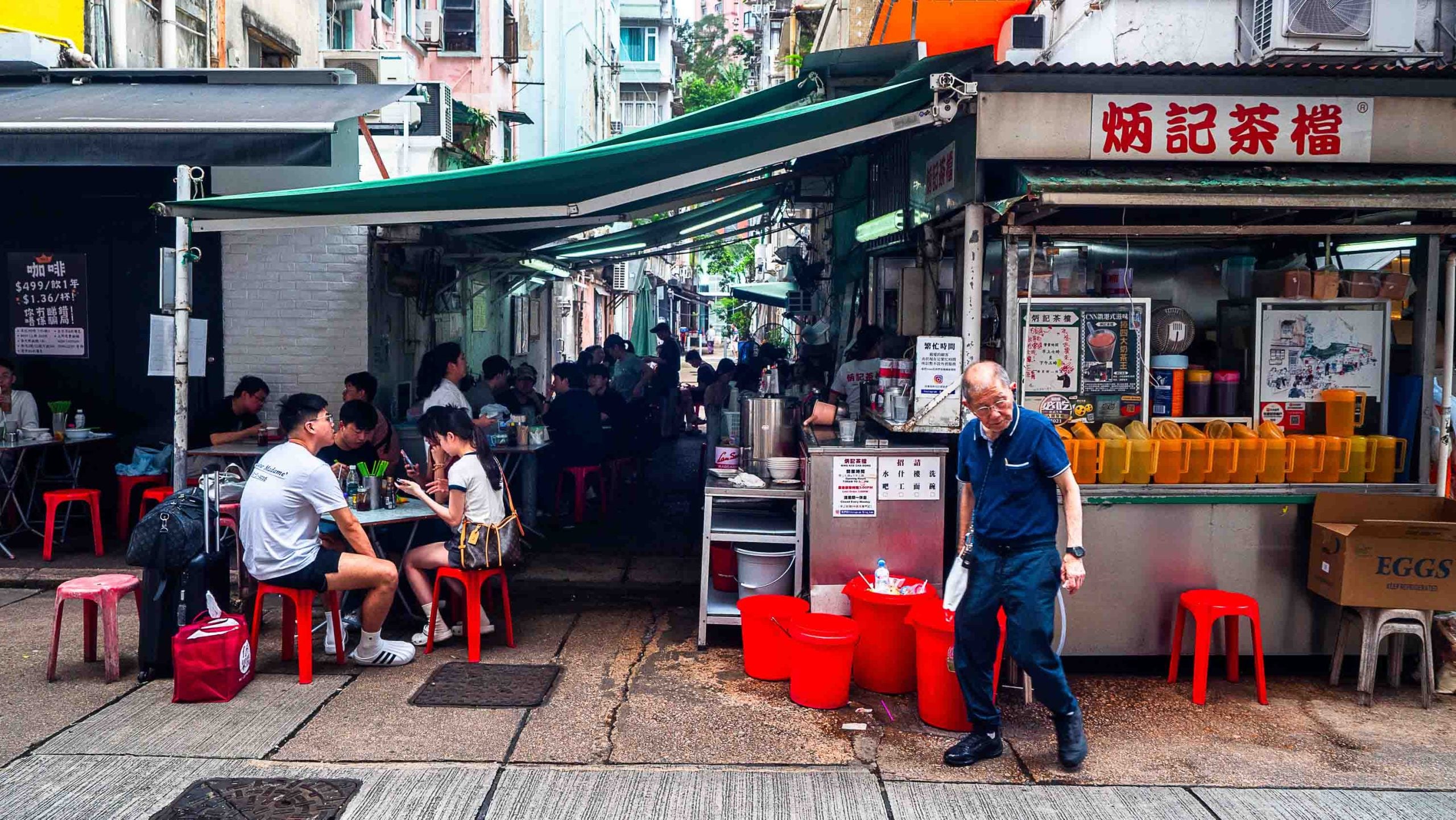Even in a city of over 26 million people, Niu “NY” Yun is hard to miss. Sporting a shock of neon hair and colorful outfits, she can usually be found at one of her two Yunnanese food restaurants, Slurp and Pilipala, or behind the DJ decks generating visuals for one of Shanghai’s wildest LGBTQ parties.
Located at China’s southwestern tip adjacent to southeast Asia and bordering with Myanmar, Laos and Vietnam, the ethnically diverse Yunnan province is the source of what may be some of the country’s best kept culinary secrets. Niu’s two restaurants specialize in Dai minority cuisine, which is inflected with fresh, spicy and sour flavors.
We grabbed a bite with the Kunming transplant to talk about her two restaurants, discovering her heritage through food, VJing, and some of her favorite childhood snacks.

NY in one of her colorful outfits at our Slang Dynasty shoot
Tell us about yourself, how you came to Shanghai, and how you ended up in food.
My name is Niu Yun, but everyone calls me “NY”. I was born and raised in Yunnan before coming to Shanghai for university.
After going to London for two years to study design, I decided to come back because Shanghai was the ideal environment to start my own fashion label. Then some friends and I got the idea of opening a Yunnan rice noodle shop together, and in 2014, Slurp was born.
Can you introduce Yunnan food to anyone who hasn’t had it before?
I usually tell people it tastes like a Chinese version of Thai food, because Yunnan province is on the border with southeast Asia. It uses lots of fresh herbs and ingredients, like wild mushrooms, flowers, and lemongrass. Yunnan is landlocked, however, so there isn’t as much seafood as in southeast Asian food.
A lot of the ways we cook also have a strong connection to nature, like how we wrap barbecue in banana leaves, or boil things in spring water.
Why did you name your first restaurant Slurp?
Back in the day — I guess, before Yunnan food was really that “cool” here — we wanted to open a Yunnan restaurant because we really missed the taste of home. One of my partners, Rain [Lei], is from Guizhou [a province bordering Yunnan and Sichuan], which shares some flavors and traditions with Yunnan. We also both share some minority blood.
The Chinese name for Slurp is “Yunnan Small City” (云南小市), and we always wanted it to feel almost like a street food stall. At first we wanted to just open a rice noodle place, because rice noodles are a staple food of Yunnan people — we eat it for breakfast, lunch, and sometimes dinner. And when you eat rice noodles, you have to slurp it.

Yunnan rice noodles at Slurp
We liked how this English name was so cute and direct, and when we opened Pilipala, a Dai barbecue place, we went with a similar direction. For the English name, we chose the Chinese words that sound like fire crackling. “Pilipala!”
Editor’s note: The Dai people are one of China’s 56 officially-listed ethnic minorities. There are an estimated 1.2 million Dai living in China as of the 2010 census.
And Pilipala focuses more on Dai minority food?
Yes. My mom is half Dai, so I’m a quarter Dai. But I don’t speak Dai at all. I grew up in Kunming [Yunnan’s provincial capital]. Most of my connection with this culture was through eating, and whenever we’d travel back to my mom’s hometown for Chinese New Year, we would eat such good food.
Opening this restaurant did help me connect back to my Dai heritage. Rain and I both like to cook for other people, and at one point, we thought we could be the main chefs of this place. And then we realized… No way. [laughs]
Related:
 Yunnan Invented the World’s Hottest PepperArticle Aug 23, 2017
Yunnan Invented the World’s Hottest PepperArticle Aug 23, 2017
All of the chefs at Pilipala are Dai minority themselves. It’s a really nice cuisine, really different from other Chinese food.
What makes it different?
Yunnan has lots of different cultures and climates, and depending on where you are, nature will give back different ingredients. For instance in the highlands, in places like Dali or Lijiang, the food tends to be a bit heavier.
Since Dai people live further south, in the rainforests of Yunnan, there’s a lot more biodiversity around them.
The flavors and textures in Dai food are very unique partly because we use ingredients that might otherwise be considered weird — like moss, fermented bamboo, or bugs.
Also, unlike other types of Chinese food, there isn’t much oil or flavored sauce used. We prefer to derive flavors naturally by mixing and matching different things, such as steamed rice and bamboo or pineapple.
So what’s this dish we’re eating here?
This dish is called “Save The King” (大救驾 dajiujia). It’s one of my favorites. It’s sliced rice cake mixed with pork and a lot of fresh vegetables.

Dajiujia at Pilipala
The story goes that the last Ming Dynasty king and his courtiers were kicked out of Beijing, and fled to the South. They were starving, but a poor housewife discovered them and took them in. She made this dish that saved their lives.
Do you have fond memories of this food?
Some of the items, like Old Kunming fried artichoke (老昆明炸洋芋 lao Kunming zha yangyu), are a lot like the snacks or street food we’d eat growing up.
Our parents would never allow us to eat fried food, like these Yunnan fries here. But sometimes, we’d have maybe 10 minutes between the time school had finished and our parents were home. We’d buy a bag and eat them between five of us girls, standing in the middle of the street.

Fried lotus root at Pilipala
Do you have any favorite places to eat in Kunming?
There’s one little restaurant by my friend’s house in Kunming that doesn’t have a name. If you haven’t been there, you won’t even be able to find the entrance [laughs]. That’s very common for this kind of food in Kunming. But they do super amazing banana leaf-wrapped BBQ.
The others are mostly very local restaurants in town. A good tip is to always ask the local people. More often than not, they will tell you a place to eat just one kind of food — like one for sour beef soup, one for rice noodles, one for soy milk soup noodles.
You also VJ (video jockey) in Shanghai. How did you get into that?
I used to go to parties thrown by this group in Shanghai called The Ice Cream Truck [TICT]. I’d hang out there, and eventually one of the VJs taught me how to do it.
Any parties you like to VJ in general?
There’s [an LGBTQ party called] Medusa — that’s always really fun. The organizer Michael performs there and is also a talented illustrator. I tend to like animation, motion graphics, retro cartoons, and sometimes a bit of Michael’s gay porn. [laughs]

NY video jockeys in the early days of Medusa
A lot of house and techno organizers ask for visuals to be really minimal. But I like bright, crazy, fun colors. As you can tell.
You definitely do seem to like colors.
I think it’s part of being from a tropical climate.
In Yunnan there’s lots of heat, light, and lots of different plants and animals — I think that as a result the colors are very saturated and bright. When I visited South America, I saw a lot of that in common with both art and the food.
Do food and art have anything in common for you?
In the end they are both really about craftsmanship, which is something that I am always in awe of. That’s also I think partly why I chose to make a career in both fields. When it turns to work, I think we make more of an effort.
Do you consider cooking an art form?
Definitely. I’ve always had respect for people that can make good food. Food is one of the most natural ways for people to connect.
Making food is in many ways a really freeform way of mixing together and expressing all the things you like. It’s also a great way to share your culture, traditions, and interests with each other.
When people think of “Chinese” food, they think of Cantonese, dongbei [northeastern Chinese] or Sichuan food. We’ve already done some pop-ups in Germany and a few other places. People don’t really know what Yunnan food is outside of China, and we hope that will change.



















